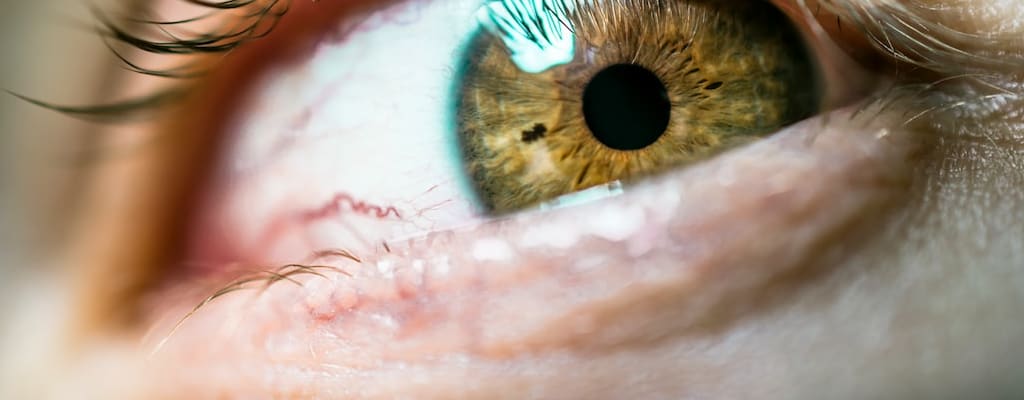keep an eye out: Idiom Meaning and Origin
What does ‘keep an eye out’ mean?
The phrase "keep an eye out" means to be watchful or alert for something or someone, often with the aim of finding or noticing them. It is used to emphasize the importance of being observant and paying attention to one's surroundings.

Idiom Explorer
The idiom "watch out" means to be careful or vigilant, usually in order to avoid danger or potential harm. It is often used as a warning to someone to pay attention to their surroundings and be cautious.
The idiom "lay eyes on" means to see or look at something. It implies that the person looking at something has a strong desire or interest in it.
The idiom "keep watch" means to stay vigilant or be on the lookout for potential dangers or threats. It implies being aware and alert to ensure the safety or security of someone or something.
The idiom "keep company" means to spend time with or be in the company of someone, usually in a social or friendly manner.
The idiom "keep a weather eye open" means to be vigilant or observant, particularly in regard to potential dangers or changes in circumstances.
The idiom "keep an eye peeled" means to be vigilant or watchful, paying close attention to one's surroundings in order to notice any important or unusual developments.
The idiom "keep an eye open" means to remain alert or vigilant, to pay close attention to something or someone in order to avoid missing any important information or opportunities.
The idiom "keep an eye on" means to regularly and closely monitor or watch someone or something, usually to ensure their safety or to prevent any problems. It implies being observant and vigilant in order to maintain control or stay informed about the situation.
The idiom "keep a low profile" means to avoid attracting attention or publicity, and to remain inconspicuous or discreet in one's actions or behavior.
The idiom "keep a lid on" means to maintain control over something, especially to prevent it from becoming known or causing trouble.
Meaning Unveiled
Keep an eye out is an idiomatic phrase that means to be vigilant, watchful, or observant in order to notice or find something or someone. It is often used to encourage someone to pay attention or be on the lookout for a specific object, event, or person. The phrase "keep an eye open" is a similar idiom that conveys the same meaning. Another related idiom is "keep an eye peeled," which also means to be alert and watchful. Additionally, "keep an eye on" is another idiom that means to monitor or watch carefully. These idioms all emphasize the importance of being attentive and observant in various situations.
The origin of the idiom "keep an eye out" can be traced back to the late 18th century. The word "keep" in this context means to continue or maintain, and "an eye out" refers to being alert or watchful. This literal interpretation aligns with the historical usage of the phrase. Although the phrase's origin and history have not been extensively documented or analyzed, it has been widely used for several centuries and has maintained its primary meaning throughout its existence.
In contemporary usage, the idiom "keep an eye out" is employed in both formal and informal contexts. It is often used in warnings, advice, or instructions to urge someone to stay alert and be observant. For example, a parent might tell their child to "keep an eye out for oncoming traffic" when teaching them to cross the street safely. This idiom can also be used metaphorically, suggesting the need to be watchful or attentive to subtle cues or indications. It conveys the idea of being cautious or wary of potential pitfalls or dangers.
Variations of the phrase "keep an eye out" can be used to emphasize the importance of vigilance in specific situations. For instance, "keeping both eyes out" or "keeping one eye out" can be used to highlight the need to be even more vigilant or cautious. These modifications of the idiom further stress the importance of being observant and attentive.
The phrase "keep an eye out" is not only a common idiom in everyday conversation but also features prominently in popular culture and literature. It is frequently utilized in detective novels, mystery stories, and suspenseful movies to create tension and highlight the need for constant vigilance or surveillance. This widespread use of the idiom in popular culture demonstrates its enduring relevance and the widespread understanding of its meaning.
"keep an eye out" is a well-known idiom that encourages vigilance and attentiveness. Its meaning is clear and easily understood, making it a valuable tool for effective communication. It has a rich and varied usage, both literally and metaphorically. The related idioms, such as "keep an eye open," "keep an eye peeled," and "keep an eye on," further emphasize the importance of being observant and vigilant in different contexts. Although the origin and historical documentation of the idiom may be limited, its enduring popularity and frequent appearance in popular culture highlight its ongoing relevance in contemporary language.
Example usage
Examples of how the idiom keep an eye out can be used in a sentence:
- She asked her neighbor to keep an eye out for any packages delivered while she was away.
- The detective told the witnesses to keep an eye out for any suspicious activity in the area.
- He always keeps an eye out for sales and discounts while shopping.
More "Vigilance" idioms



